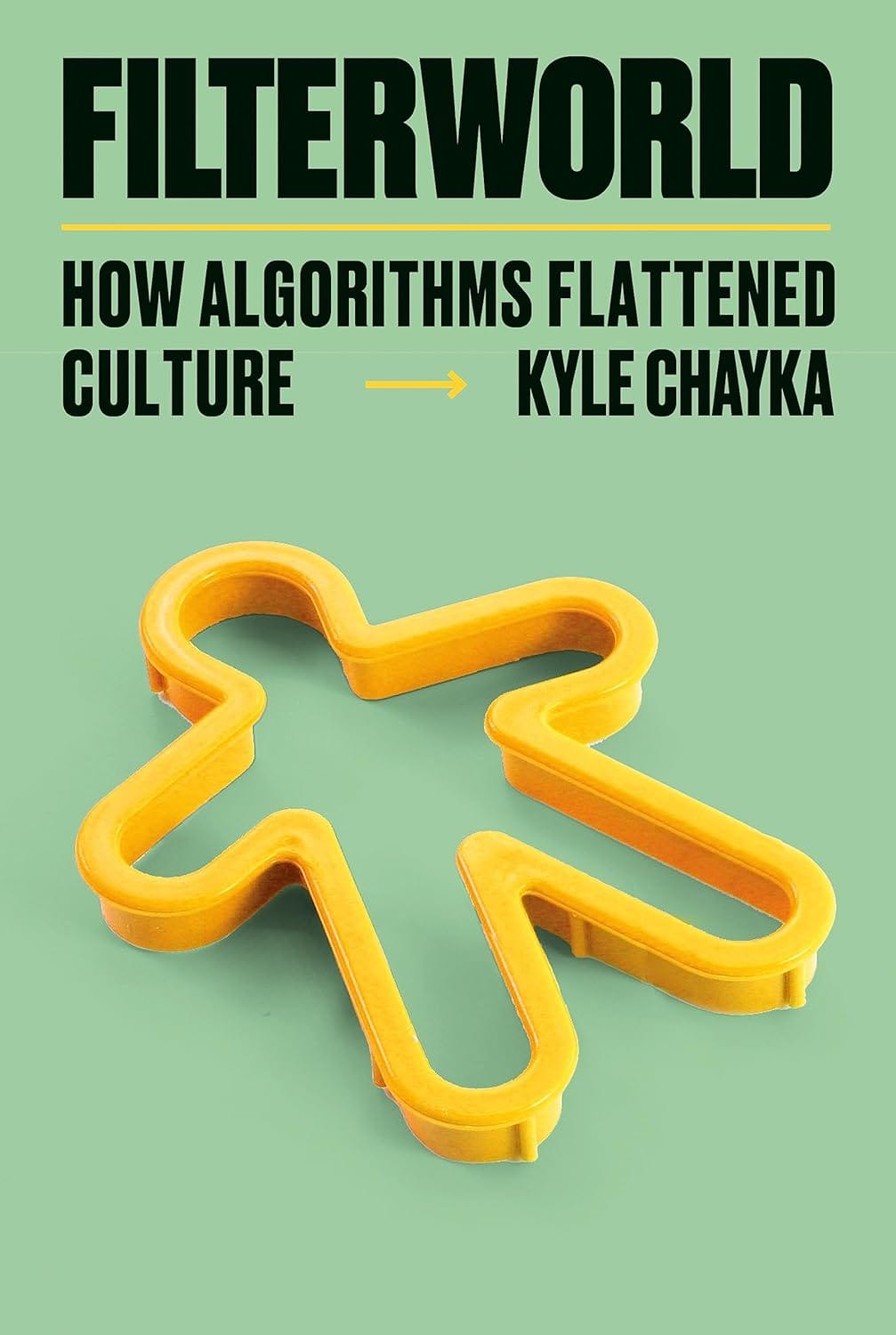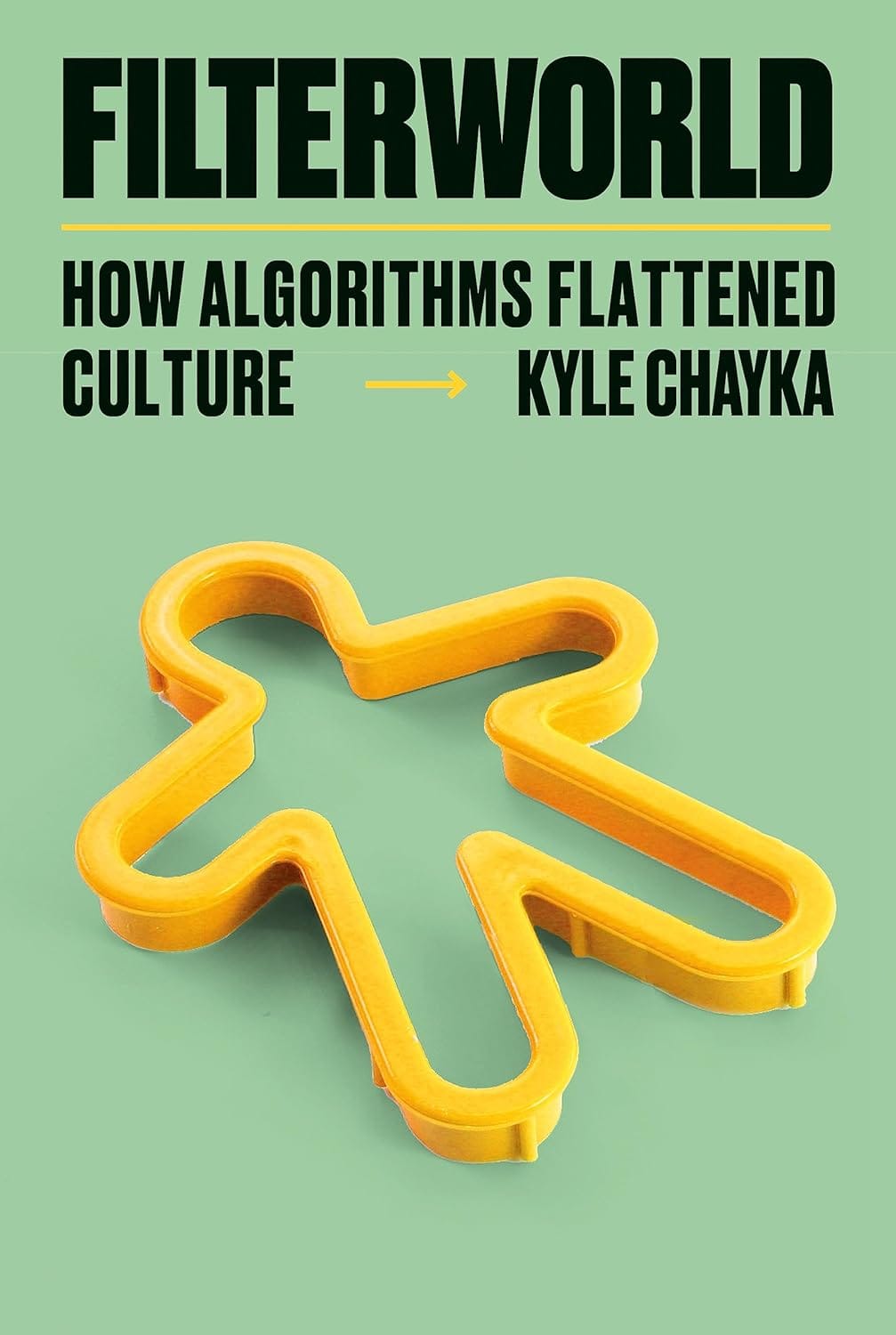Exploring the Cultural Impact of Algorithms: A Review of Kyle Chayka's 'Filterworld'
In "Filterworld," author Kyle Chayka navigates the intricate labyrinth of the modern digital landscape, juxtaposing personal anecdotes with critical analysis to explore how algorithms shape our cultural consumption.

In "Filterworld," author Kyle Chayka navigates the intricate labyrinth of the modern digital landscape, juxtaposing personal anecdotes with critical analysis to explore how algorithms shape our cultural consumption. His narrative, rooted in nostalgia, begins with a recollection of his formative years, where personal discoveries, like stumbling upon John Coltrane's jazz masterpiece on a local radio station, were serendipitous rather than algorithmically curated.
Chayka's book is a poignant reflection on the seismic shift from human-curated experiences to algorithm-driven recommendations. He laments the loss of personal touch in cultural discovery, arguing that platforms like Spotify, with their impersonal algorithms, fail to provide the rich context and personal connection that a human DJ or curator can offer. Chayka’s reminiscences of an internet era defined by human connections and discoveries form a stark contrast to today's algorithm-dominated world.
"Filterworld" dives deep into the debate of algorithms versus human tastemakers. Chayka, with a hint of nostalgia, mourns the erosion of personal taste, which is now heavily influenced, if not dictated, by the algorithmic selections of platforms like Netflix, TikTok, and Spotify. He expresses concern that these algorithms promote a homogenized culture, prioritizing mass appeal over uniqueness and depth. The book echoes Thomas Friedman's thoughts on globalization but focuses on the cultural flattening in the digital domain.
Chayka skillfully critiques the superficiality of algorithm-driven content, exemplified by Netflix's "Emily in Paris," and contrasts it with more culturally enriching narratives like "Sex and the City's" Carrie Bradshaw. This comparison underscores his argument that modern culture often favors consumerism over substantive cultural contributions.
However, "Filterworld" occasionally stumbles, offering oversimplified analyses that underplay the complexity of the internet and social media. Chayka's call for a return to a more human-centric mode of cultural curation seems somewhat idealistic, overlooking the fact that even in the pre-algorithm era, cultural popularity was influenced by factors like race, gender, and class.

Filterworld: How Algorithms Flattened Culture
From trendy restaurants to city grids, to TikTok and Netflix feeds the world round, algorithmic recommendations dictate our experiences and choices. The algorithm is present in the familiar neon signs and exposed brick of Internet cafes, be it in Nairobi or Portland, and the skeletal, modern furniture of Airbnbs in cities big and small. Over the last decade, this network of mathematically determined decisions has taken over, almost unnoticed—informing the songs we listen to, the friends with whom we stay in touch—as we’ve grown increasingly accustomed to our insipid new normal.
The book shines in its exploration of the psychological impact of living in an algorithm-driven world. Chayka's interviews and personal reflections reveal a deep unease about how much our preferences are shaped by unseen digital forces. This part of the narrative resonates strongly, providing valuable insights into the internal conflicts many face in an era where digital influence is omnipresent.
Despite its compelling points, "Filterworld" sometimes reads like a nostalgic longing for a bygone era, failing to fully address the complexities of the current digital landscape. Chayka's critique of the monopolistic power of big tech companies is a crucial conversation, yet his solutions, centered on individual actions like cultivating personal taste, feel inadequate in the face of systemic issues.
In conclusion, "Filterworld" by Kyle Chayka is a thought-provoking exploration of the cultural shifts brought about by the rise of algorithms. While the book sometimes veers into nostalgic territory and offers solutions that may seem simplistic, it successfully captures the essence of our struggle to retain individuality and authentic taste in an increasingly algorithm-driven world. Chayka's narrative is a valuable addition to the conversation about the future of our digital lives, urging readers to reflect on the true cost of convenience and uniformity offered by algorithmic culture.





